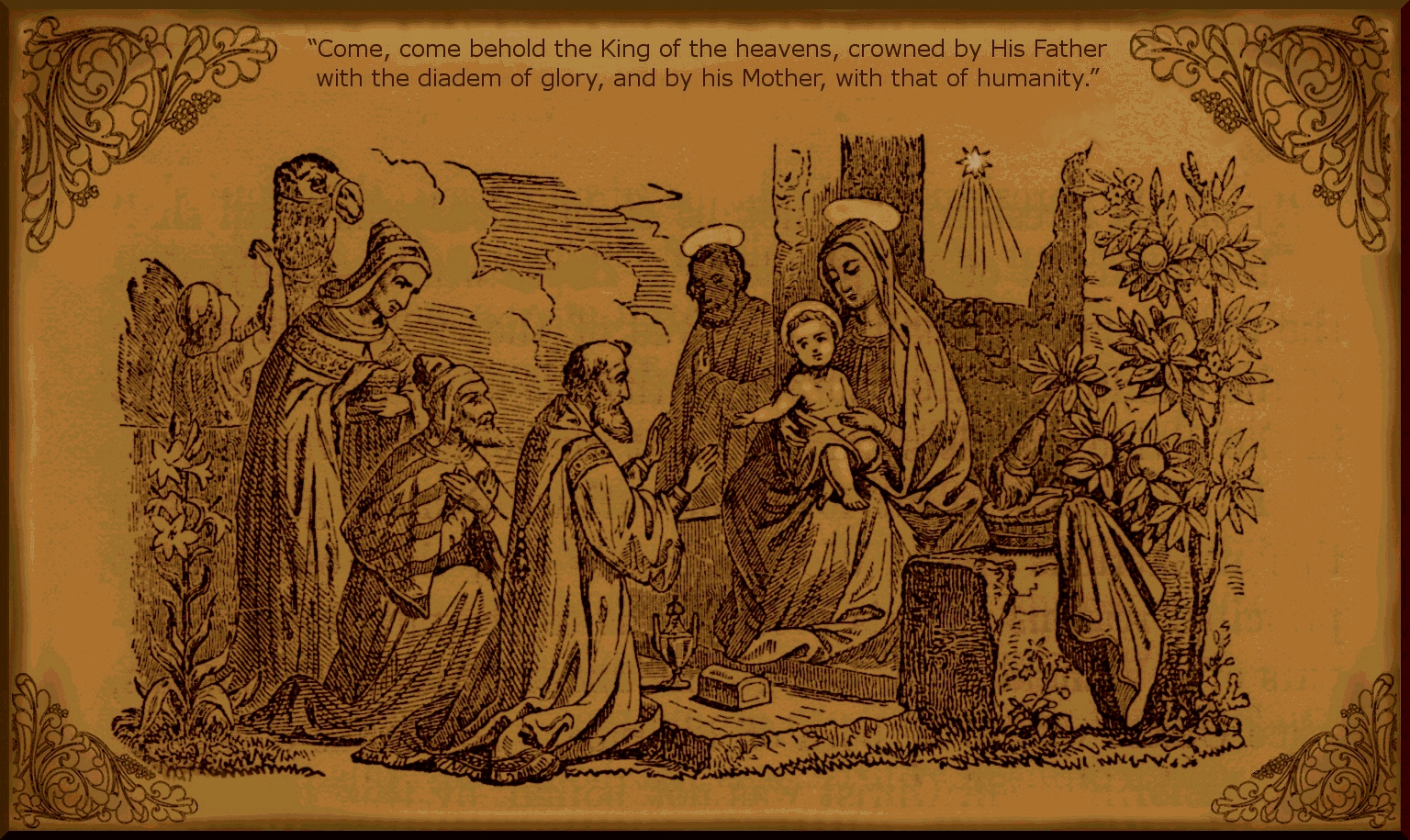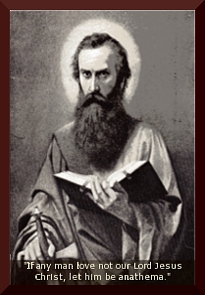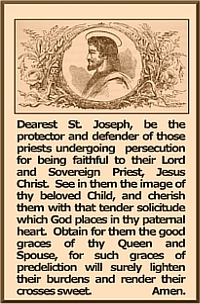Isaias foretold regarding Jerusalem that a “ multitude of camels shall cover thee, the dromedaries of Madian and Epha: all they from Saba shall come, bringing gold and frankincense: and shewing forth praise to the Lord.”
This prophecy was fulfilled at the coming of the Magi to the lowly dwelling where lay the Divine Infant King born at Bethlehem. There they adored and placed at His feet gifts of frankincense, gold, myrrh, thus solemnly acknowledging the Kingship and Divinity of the Man of Sorrows. (As I write this, I can’t help but recall a mandatory catechetical session I once attended. The presentation by a priest was on the Gospel Infancy narratives according to the mind of Raymond Brown. For those of you who may not know, this quasi-heretic Brown, did not believe, among other things, in the historicity of the visit of the Wise men. Needless to say, I was fuming as I left the hall.)
But back to my subject:
Although the gospel of Matthew does not divulge much regarding these visitors, there are things that tradition does tell us: for example, their names and that they were not only Wise men, but indeed, also kings; for did not David prophesy that “all kings of the earth shall adore him”? Can we not believe that these three were the first royalty to initiate the fulfillment of that prophecy? The gifts they brought were costly and befitting the possessions of kings. Besides, the early Fathers such as St. John Chrysostom, and St. Gregory believed them to be kings. It is also the common opinion and sentiment of the Fathers that their names were Melchior, Gaspar, and Balthazar. Bede even gives us a description: Melchior, “old and pale, with long beard and hair offered gold”; Gaspar, “young beardless, ruddy, who offered incense”; Balthazar, a Moor with a long beard” who offered myrrh.
Monseigneur Gentilucci, in a footnote to his monumental work, Life of the Blessed Virgin expresses the following note of interest: “For us, on the faith of the most credible writers, we think that they [the three Kings] were Arabians, disciples and perhaps descendants of the prophet Balaam, who had foretold this star, long expected by them. [That’s another thing Brown did not believe. He said the part about the star of Bethlehem was made-up.] In thirteen days they could reach Bethlehem, and we believe it the more readily, as the queen of Saba had already come from those parts to see Solomon. All the country, in further Arabia, such as the land of Madian and Epha, was called Saba (St. Jerome. De Locis heb.)and if the Wise men dwelt there, the prophecy of Isaias was fulfilled to the letter…”
Gentilucci further states that a camel can travel as far in one single day as a good horse will in three, and that scripture attests that they came in haste, led by the star. If it were so, and they arrived in 13 days, the lodging where they found the Child and His Mother must have been the cave. But why does Matthew say that the Wise men entered a house? Well, the Hebrew language in which St. Matthew wrote, “calls any inhabited place a house, be it a cabin or a grotto like that of Bethlehem.” Gentilucci writes that “St. Jerome in his letter to Euctochium…says formally, that Jesus Christ was adored by the Magi in the grotto where [H]e was born. Baronius does not hesitate to give credit to the affirmation of the Holy Doctor, followed moreover by Saint Augustine, St. Peter Chrysologus, and many others…”
And with their gifts, they acknowledged the new-born Child as God, King, and Man. It is this manifestation to the world, this Epiphany, the day of the Three Kings which we celebrate on January 6.




